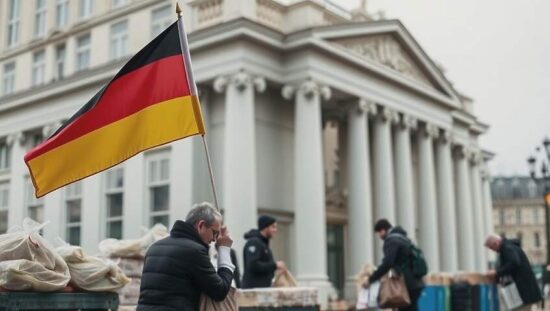German Firms Report Slight Decrease in Order Backlog, But Uncertainty Remains
A recent survey by the Ifo Institute in Munich, Germany, has revealed a slight decline in the proportion of companies that report a lack of orders, but the situation remains precarious.
According to the survey, in April, 37.3% of German companies reported a shortage of orders, a decrease from the 40.2% in January. This marks a continuation of the trend that began at the start of the year, but the proportion of affected firms remains high in the long term. “Despite the slight improvement, this is not a sustainable recovery” said Klaus Wohlrabe, head of the Ifo surveys. “Demand remains subdued in many areas and the current high uncertainty could quickly reverse the trend.”
The survey found that the manufacturing sector has seen a significant decrease in the proportion of companies reporting a lack of orders, from 44.8% to 36.8%. The automotive and chemical industries have shown some improvement, while the machinery sector still faces a high order backlog, with around 43% of companies reporting a shortage.
In contrast, the food and beverage industries, with 19% and 25% of companies respectively, reported a relatively low proportion of order backlogs. The wholesale and retail sectors, however, continue to be heavily affected, with 61% of wholesale companies and nearly half of retail businesses reporting a lack of orders, a result of consumer caution.
The services sector also saw a slight increase in the proportion of companies reporting a lack of orders, from 31.2% to 32.2%. The temporary work agencies, with 73.4% of companies reporting a shortage, are the most affected, followed by the hotel industry (60%) and IT services (47.8%), which are struggling with the weak labor market.





